The Pendulum that is North Korea. The Extraordinary DPRK
North Korea, the DPRK, is a strange and fascinating land.
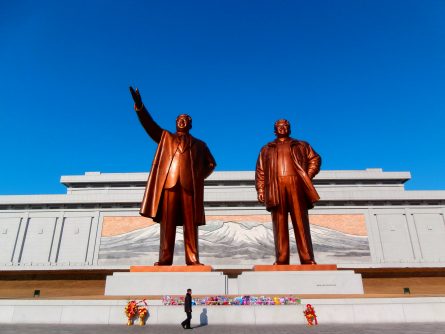
The problem with image and perspective is that too frequently they are based on an extreme viewpoint of the issue at hand. Consequently, in subsequent discussion, one is tempted or even driven to take a position of equal but opposite enthusiasm on the other side of the scale.
And such is my problem with North Korea; it is a nation that draws such invective and hatred, that having seen that it is not all like that there is a temptation to illustrate life in the DPRK in rather more glowing terms that it is due.
It must be said that there are dozens of countries around the world whose governments act (from our perspective) in the most reprehensible ways.
The Dominican Republic, has a particularly venal administration, home to billions of dollars of laundered drug-money, yet millions of visitors suspend their interest in the politics of their destination, and concentrate instead on the sunshine and the varying shades of umbrellas decorating their drinks.
There are many such countries.
So let us be clear; I am hopeful rather than naïve, and although I was born at night, it was not last night.
The DPRK is fascinating; it is a country who has addressed their many problems through an extremely forceful offensive, a belief so complete in the correctness of the righteousness of the DPRK and their philosophy of Juche (self-reliance), and by sealing the country off to outside influences.

Tourists, of course, provide difficulties. They are by nature inquisitive and eager to see as much as possible. Those who have reached the DPRK are completely aware of the nature of the regime, and are unprepared for the normalcy of day-to-day life both in the city, the towns and the fields.
The picture is clean; peculiar, but clean. It is ordered, or marshaled, but alive. There are, among the country’s substantial “middle class” lives being lived, loves being requited, children growing up albeit in a parallel universe.I was surprised only by the size and life of the large “middle class”; middle, of course, being a relative term, and not a term of external comparison.
Life included such mundane moments as bowling, going to the bar (segregated from foreigners) for a few beers, shopping, flirting and singing revolutionary songs at karaoke bars.
The real curiosity is the absolute unawareness of the outside world, best illustrated by the folks who, having found out that I was from Canada, expressed their knowledge of the country by saying “Ah, Ottawa”! Who would ever associate Australia immediately with Canberra, or Brasil with Brasilia. Not many ….
The DMZ does form a focus for the psyche of the North Koreans; it is an obvious symbol of the division of the country, and highlights the difficulties that their southern neighbours endure through the occupation of tens of thousands of US Agressors.
They are patiently waiting for the peninsular to be reunited under the benevolent leadership of the Dear Leader, and its continued military presence is vital to maintaining control.
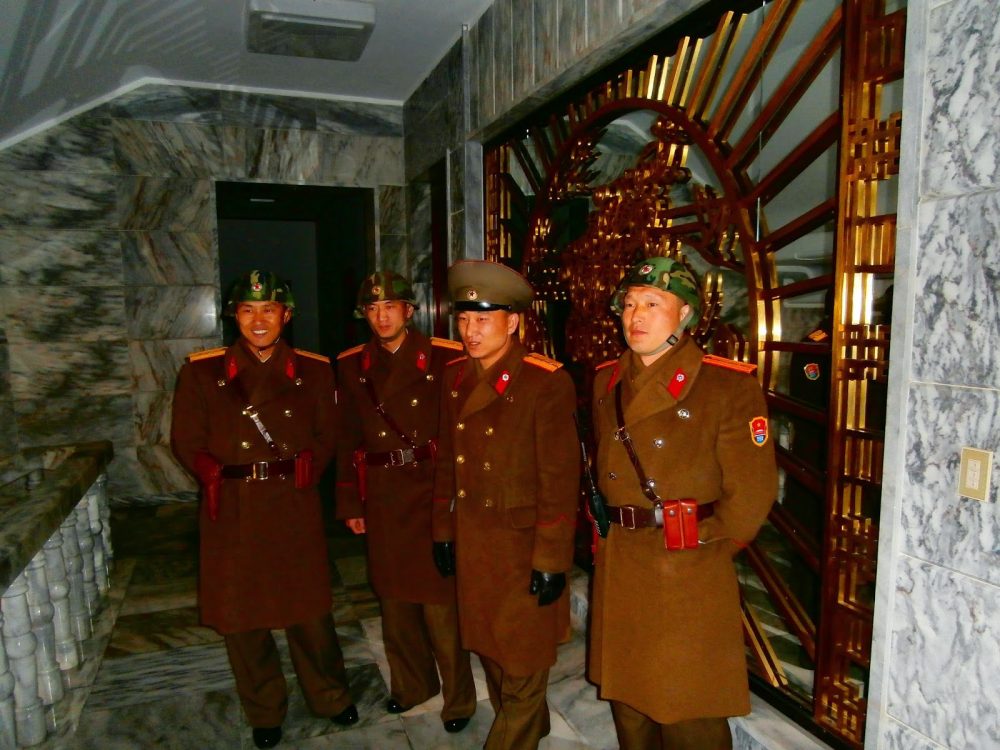
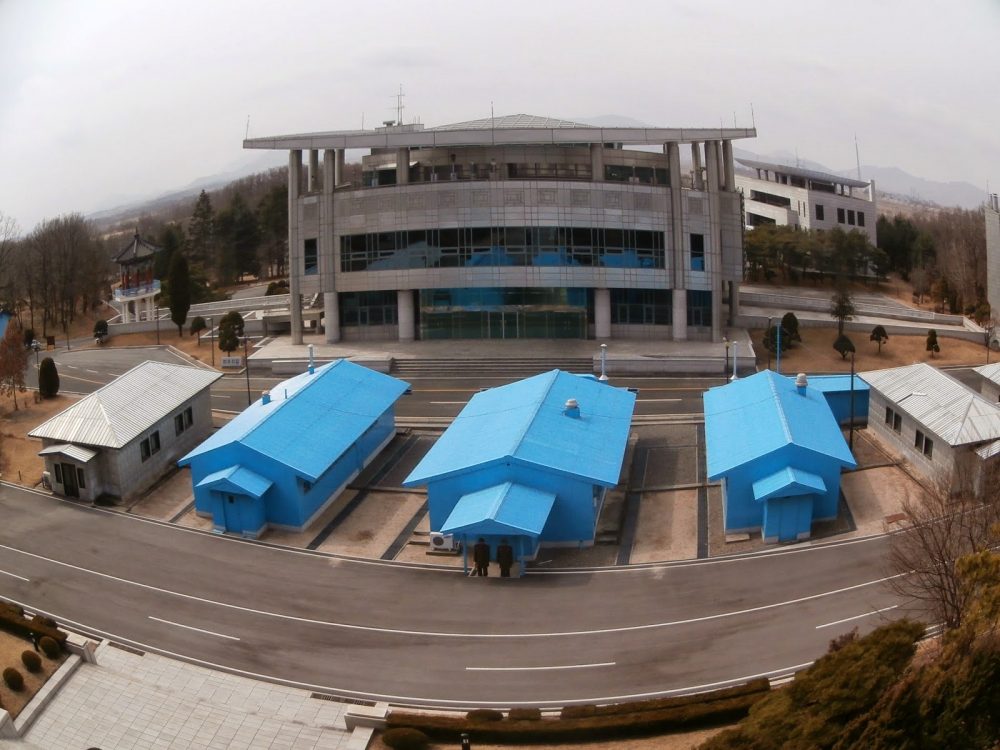
We are shown, at a point some 40 kms from the DMZ, evidence of the Concrete Wall. Between 1976 and 1979, the South Koreans with the urging of the American Agressors built a wall stretching 240 kms across the Korean Peninsula. It is between seven and ten metres high, ten metres thick, disguised on the northern side by landscaping that disguises the wall’s malevolent purpose.
The wall houses tanks in each sector, ready to attack at the slightest provocation. Well-fortified guard emplacements dotted this barrier, and all were ready to fight.
We were shown this first on a map that a well-decorated military officer, complete with a rather vigorous pointer, used to tell the tale, and stoke his indignation. The, led to a balcony several sets of binoculars aimed toward the south, we saw a distant white line, a UN guard post and a highway with hundreds of cars whizzing by.
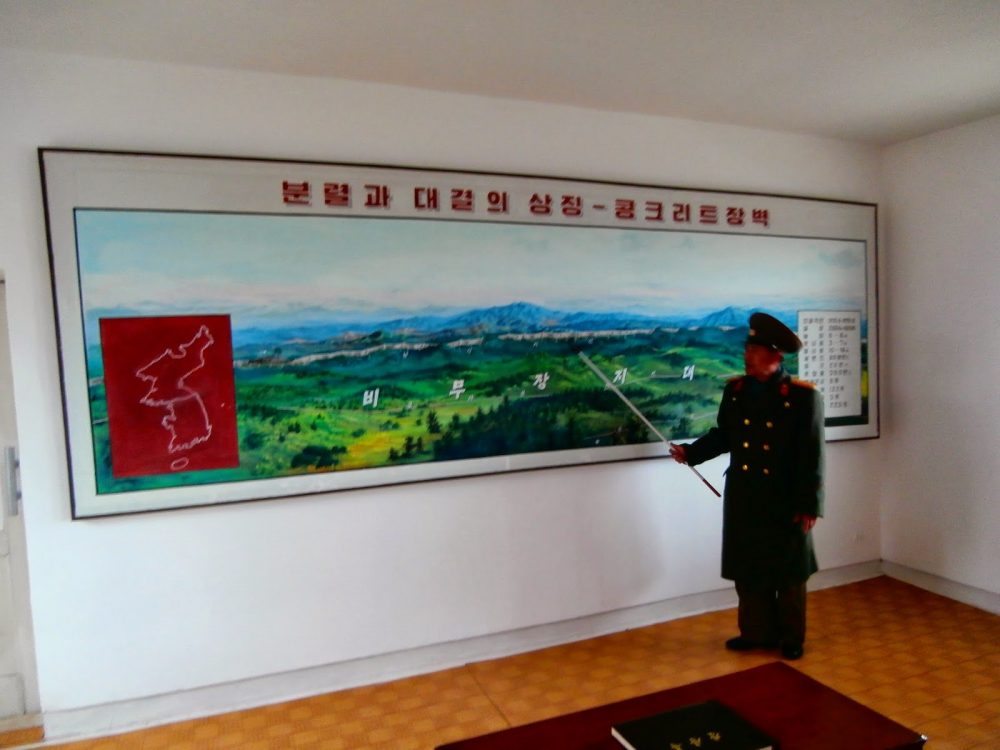
Amazing, that such a structure was built so recently, and that none of us have ever heard about; clearly a military adventure of epic proportions, and one that lies at the heart of the danger large to be a dangerous and trigger-happy world of the DMZ.
Which would be alarming, if it were not completely untrue. There is no wall; the structure was mentioned in passing in a speech by Kim Il-Sung, and having been mentioned, became the truth. A complete fiction evolved, complete with complex props, and now, it is impossible to comprehend that none involved with this elaborate sham are unaware that it is all a figment of some fertile imaginations.
And so, climbing carefully back through the Looking Glass, we returned to Pyongyang. Driving up the traffic-less Unification Highway, past scenes of medieval agricultural activity toward the 21stcentury city that is the country’s showpiece and capital, glimpses of life Through the Looking Glass were everywhere.
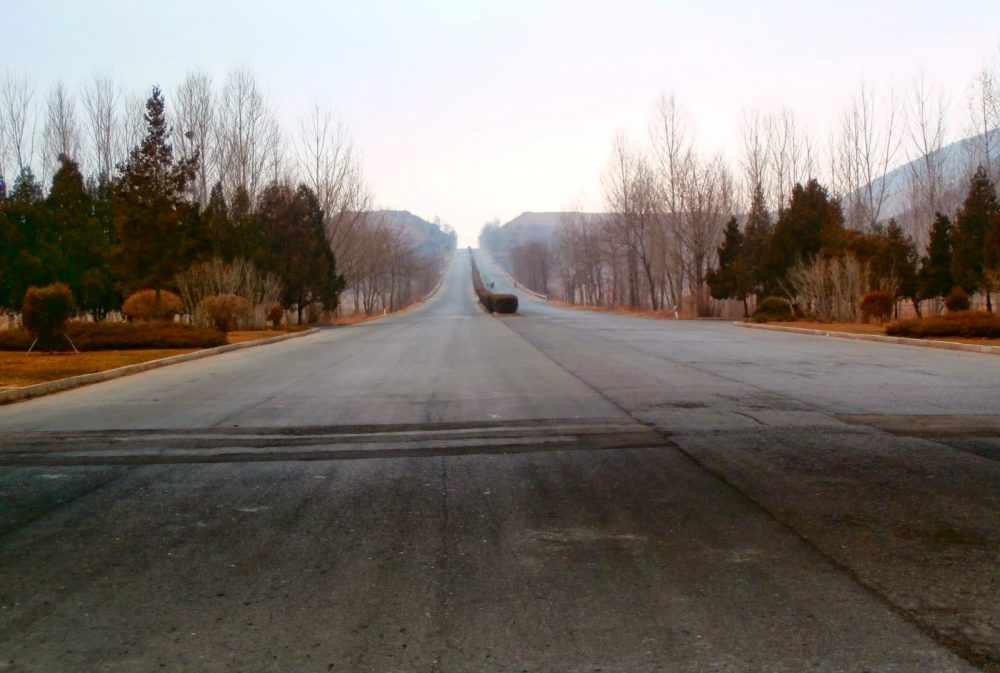
Completely in thrall to their country and their leader’s accomplishment, their lives compartmentalised and in Pyongyang at least, comfortable according to their scale, for reasons that I cannot pretend to comprehend, life is well under control.
And so, as much as I enjoyed, and indeed was fascinated by the DPRK, I was surprised only by the size and life of the large “middle class”; middle, of course, being a relative term, and not a term of external comparison. Having spent five days in North Korea, I now feel prepared to return and see even more of their unique and parallel culture.
